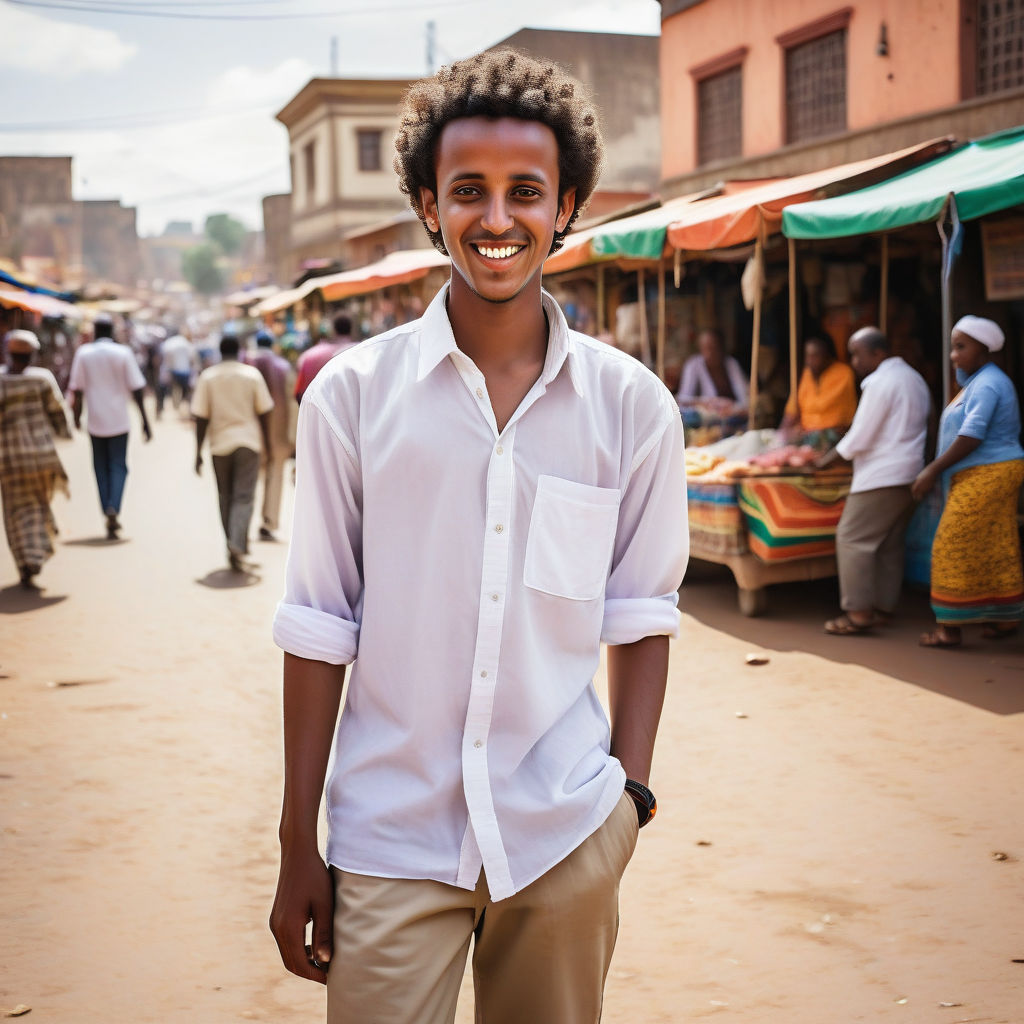Cultural Background
Ethiopian men are part of a rich cultural heritage that dates back thousands of years, blending ancient traditions with modern influences. This mix shapes their values, customs, and daily practices.
Example: An Ethiopian man might celebrate Timkat, the Ethiopian Orthodox Epiphany, with traditional processions, colorful robes, and communal feasts.
Importance: 9/10
Attitude Towards Life
Ethiopian men generally have a resilient and community-oriented attitude towards life. They value hard work, perseverance, and mutual support, often guided by a strong sense of faith and tradition.
Example: An Ethiopian man might work diligently throughout the day, then spend the evening in communal gatherings, discussing local matters and sharing stories.
Importance: 8/10
Social Views
Ethiopian men are influenced by both traditional and modern social views. While there is a growing acceptance of progressive ideas, many still hold traditional views on gender roles and social hierarchies.
Example: An Ethiopian man might support initiatives aimed at improving education and healthcare but still adhere to traditional gender roles within the household.
Importance: 7/10
Family Values
Family is the cornerstone of life for Ethiopian men. They view family as a primary source of support, respect, and identity, often maintaining close relationships with extended family members.
Example: An Ethiopian man might prioritize family gatherings and ensure that family bonds are strong and supportive.
Importance: 9/10
Views on Marriage
Marriage is seen as a vital institution, often blending traditional customs with contemporary practices. Ethiopian men typically seek partnerships based on love, respect, and shared responsibilities.
Example: An Ethiopian man might engage in elaborate wedding ceremonies that honor cultural traditions while also incorporating modern elements.
Importance: 8/10
Views on Sexuality
Sexuality is approached with a mix of traditional values and growing modern perspectives. While discussions about sexual health are becoming more open, cultural norms still play a significant role.
Example: An Ethiopian man might discuss sexual health with his partner in private, balancing respect for cultural norms with a modern understanding of intimacy.
Importance: 6/10
Views on Friendship
Friendship is highly valued, emphasizing loyalty, trust, and shared experiences. Ethiopian men often form deep, long-lasting friendships that provide emotional and social support.
Example: An Ethiopian man might regularly meet with friends for coffee ceremonies, a significant social activity in Ethiopian culture.
Importance: 8/10
Communication Views
Communication is seen as an essential aspect of maintaining relationships. Ethiopian men appreciate respectful and honest communication, often incorporating traditional forms of address and etiquette.
Example: An Ethiopian man might prefer face-to-face conversations, valuing the personal touch and respect inherent in direct communication.
Importance: 7/10
Work Views
Work is a crucial aspect of life, with many Ethiopian men striving for professional success and stability. They often balance their career aspirations with familial and community responsibilities.
Example: An Ethiopian man might pursue a career in agriculture or business, contributing to both his family's well-being and the local economy.
Importance: 8/10
Money Views
Financial stability is important, but Ethiopian men also value communal support and shared prosperity. They aim to balance saving with contributing to their family's and community's welfare.
Example: An Ethiopian man might save diligently for future needs while also participating in local community savings groups, known as "iddir."
Importance: 7/10
In summary, Ethiopian men are characterized by their resilience, community orientation, and deep cultural heritage. They value family, friendships, and cultural traditions while balancing modern and traditional views. They strive for personal and professional fulfillment, making their lives dynamic and multifaceted.
